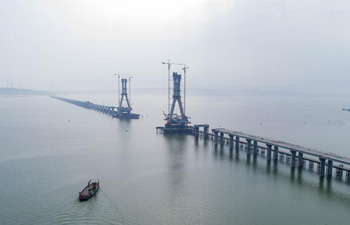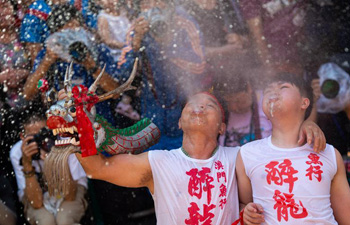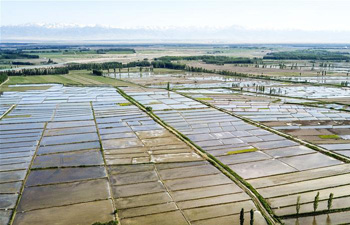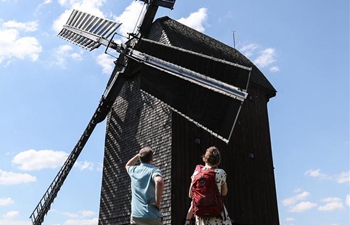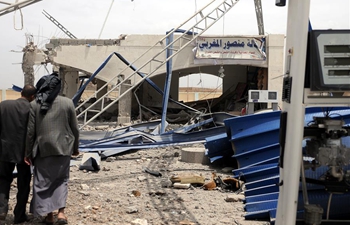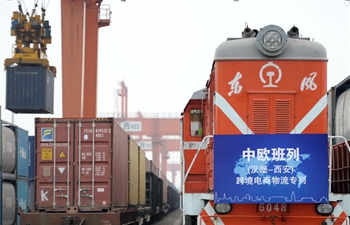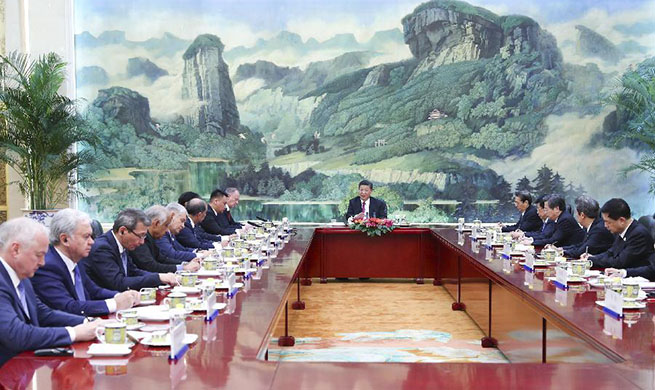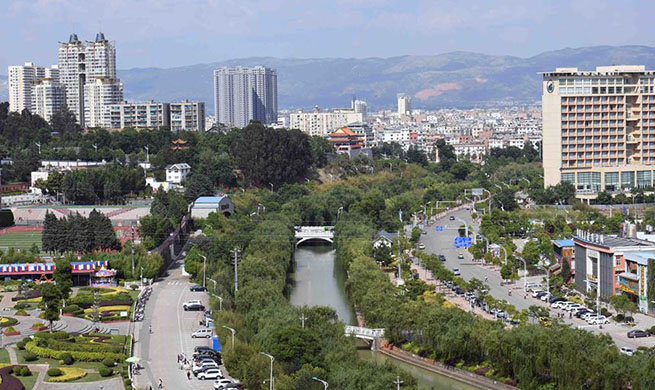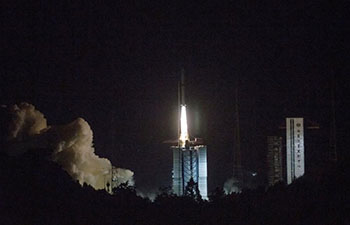by Murad Abdu
ADEN, Yemen, May 22 (Xinhua) -- As Yemen marked the Day of National Unity on Tuesday, unity was absent as the country remains divided between the rebel-held north and the south controlled by the internationally-backed Yemeni government.
This year marked the 28th anniversary of the founding of the Republic of Yemen in 1990, when former South Yemen state and North Yemen merged peacefully.
Ironically, there were no celebrations to mark the Unity Day in the south, where Yemenis are divided on the issue of reuniting with the north.
Some of them believe that the separation would bring about stability and security, while others hold that a unified federal state is the only solution to the current civil war.
Most government institutions, including the pro-government military forces, in Yemen's southern port city of Aden were not allowed to organize parades to celebrate the Unity Day publicly this year.
It was feared that such pro-unity celebrations in Aden would lead to armed confrontations with the forces loyal to the pro-secession Southern Transitional Council (STC) .
Ahmed AlSaleh, a politician and analyst, told Xinhua that "the southern people consider the unity day as a pessimistic and catastrophic anniversary and it has been treated like this since 2007 across the southern provinces."
"The southern people, particularly the workers, show strong refusal to get a day off on this occasion despite the government's announcement to make this day as a holiday," AlSaleh said.
"Southerners will never accept any upcoming solutions or political projects that will include unity with the northern part, even in a federal state," AlSaleh said.
In the past, the president of Yemen used to give a televised speech and attend a military parade in the country's capital Sanaa, now controlled by the Houthi rebels, to celebrate the Unity Day.
However, during the past three years, there were no celebrations, after the Houthis took over Sanaa in 2014.
The Yemeni government with international support is seeking to establish a new federal Yemen to keep the country unified.
In a statement addressing the Yemeni people from Saudi capital Riyadh on Monday, the eve of Unity Day, Yemeni President Abdu-Rabbu Mansour Hadi said "maintaining the unity will be through the proposal of a Federal Civil State that can produce equal citizenship, partnership in power and wealth."
He said the new proposal would ensure "a safe and prosperous future" for all Yemenis in the north and south.
But in the eyes of Majed Aldairy, a Yemeni political analyst and journalist in Aden, the dream of southerners to achieve reunification with the north was already dead in the early stages.
"Southern people are just waiting for the end of this war and then they will have the right to decide the fate of their regions under the supervision of the international community," Aldairy told Xinhua.
In May 2017, Aidarous Zubaidi, former governor of Aden, declared the formation of the STC that represents and administers the south of the country.
The STC consists of 26 southern senior tribal, military and political leaders, but the Yemeni government headed by Hadi rejected the council at that time, citing that it seeks the secession of southern Yemen.
Yasin AlTamimi, a political writer and expert, told Xinhua that there is an undeniable division among the political factions in the country as a result of the intervention of regional powers such as Saudi Arabia and Iran.
The Saudi-led coalition has been fighting the Shiite Houthi rebels in Yemen, allegedly backed by Iran, Saudi Arabia's top rival in the region.
AlTamimi noted that the United Arab Emirates (UAE), a member of the Saudi-led coalition, supports the anti-unity STC that prevented the Unity Day ceremonies in Aden last year.
On the other side, many southerners started to think differently as their desire for separation from the north has decreased sharply, said Abdul-Raqeeb AlHidyani, a political analyst and writer.
"Nowadays many people in southern Yemen do not see the separation as the key solution that will bring stability and security to their region like the situation in the past," AlHidyani told Xinhua.
"Southern people had painful experiments with the ruling of pro-secession leaders in Aden and neighboring provinces in recent years. Daily assassinations and killings occur in areas controlled by the separatist leaders," he said.
"Establishing a more federal state in Yemen will be the only way to ensure safety of the citizens in the southern and northern provinces of the country. Any other political projects will definitely face failure," he asserted.
Yemen has been locked in a civil war after the Houthi rebels seized all northern provinces including Sanaa in late 2014. Saudi Arabia has been leading an Arab military coalition since March 2015 to support the government of Hadi after the Houthis forced him into exile.
The war has killed more than 10,000 Yemenis, half of them civilians, and displaced over 3 million others, according to UN humanitarian agencies.




